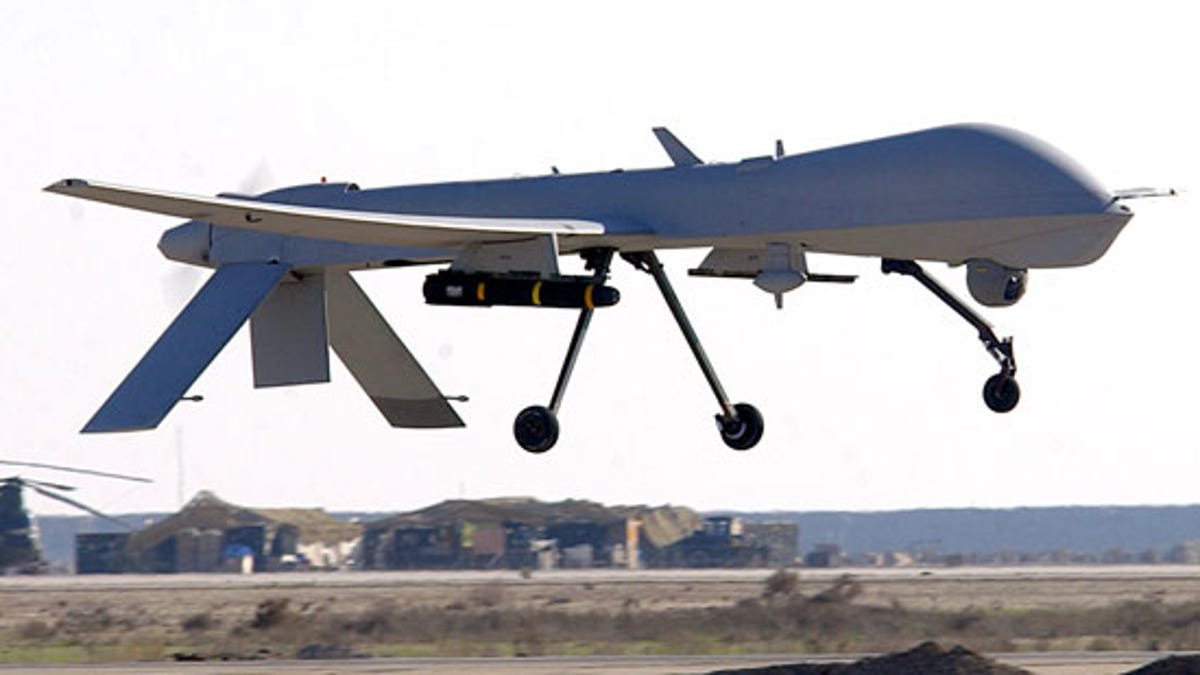Predator drones hacked in Iraq operations
The apparent security breach arose because the UAVs do not use encryption in the final link to their operators on the ground.

Iraqi insurgents have reportedly intercepted live video feeds from the U.S. military's Predator drones using a $25.95 Windows application that allows them to track the pilotless aircraft undetected.
Hackers working with Iraqi militants were able to determine which areas of the country were under surveillance by the U.S. military, The Wall Street Journal reported Thursday, adding that video feeds from drones in Afghanistan also appear to have been compromised.
Meanwhile, a senior Air Force officer said Wednesday that a wave of new surveillance aircraft, both manned and unmanned, were being deployed to Afghanistan to bolster "eyes in the sky" protection for the influx of American troops ordered by President Obama.
This apparent security breach, which had been known in military and intelligence circles to be possible, arose because the Predator unmanned aerial vehicles do not use encryption in the final link to their operators on the ground.
Read more of "U.S. was Warned of Predator Drone Hacking" at CBSNews.com.

